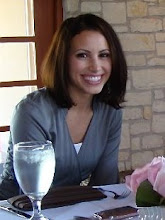My Rating: 5/5 (really)
Pages: 550 - Speed: Fast
Subject: Historical Fiction
Pages: 550 - Speed: Fast
Subject: Historical Fiction
This is one of the most creatively written books about WWII given from a German citizen's perspective. Witty and refreshingly inventive, Zusak was inspired by his German mother's stories of the Nazi rein (watch it here). One particular memory was when a herd of Jews lead through town heading to the concentration camp. An old man that couldn't keep up was given bread by a watching boy. Weeping in the boy's feet, the man poured out gratitude. But a soldier tore the bread away, whipped the man dry and beat the boy to the ground. This story inspired the two polars of the novel, which are pure love and destructive evil- both part of the human experience. A little girl named Liesel is the main character who looses her family and is emotionally lost. She catches the eye of Death-the narrator-who is haunted by human suffering (instead of the other way around). He is gathering her little brother's soul when he notices the girl and takes pity on her (though he complains he was so busy those days). She is taken in by an unlikely couple who dangerously and quietly object to the Nazi agenda. Her old "father," Hans Hubermann, has such depth that you grow an extra heart valve for this shy accordion player. Saved by a Jewish comrade in WWI, he vowed to reciprocate to his rescuer if the need arose. In the middle of a city not unlike Munich, where "the sky was the color of Jews," the rescuer's son, Max Vandenburg, appears starving at the door where Hans is his only hope. Finding refuge in a corner of Hans's basement, Max and Liesel develop friendship while white-painting over the pages of "Mein Kampf" and writing in their own creations. Liesel becomes obsessed with the craft of book thieving in a mansion house where she delivers laundry. The little joy she can exude includes reading a stolen text, one titled "The Grave Digger." During rampant war, the characters are trying to find beautiful moments to maintain dignity and purpose. The novel speaks frankly of alluded terror and secret heroism, but does so so delicately it is appropriate for young teenage readers as well as adults. For example, referring to human nature, Death says, "So much good, so much evil, just add water." This is simply unforgettable and bound to be a favorite.


Cool blog! It was great to meet you the other night! Happy reading :)
ReplyDeleteMust read this.
ReplyDeleteI read this book and could not put it down. My mother in law gave it to me. She's been an amazing resource for amazing books lately. Glad you like it as well
ReplyDelete